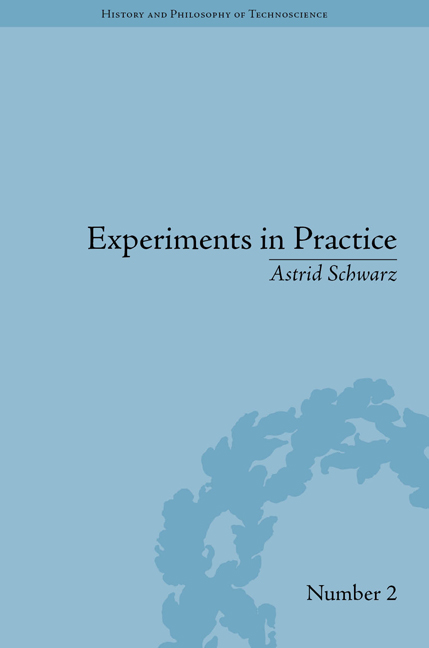Book contents
- Frontmatter
- CONTENTS
- List of Figures
- Introduction: Towards an Experimental Mode in Science, Society and Philosophy
- Part I Questioning the Scientific Method
- 1 (De)Liberating the Experiment: A Different History of the Philosophy of Science
- 2 The Philosophy of Inductive Sciences
- 3 Whewell's Innovation through Renewal
- Part II Different Modes of Experimentation
- Part III Tirelessly Tinkering with Unruly Conditions
- Part IV Practising Experiments in a World of Environmental Concerns
- Conclusion: Experiments in Practice – the Work of Experiments
- Notes
- Works Cited
- Index
2 - The Philosophy of Inductive Sciences
from Part I - Questioning the Scientific Method
- Frontmatter
- CONTENTS
- List of Figures
- Introduction: Towards an Experimental Mode in Science, Society and Philosophy
- Part I Questioning the Scientific Method
- 1 (De)Liberating the Experiment: A Different History of the Philosophy of Science
- 2 The Philosophy of Inductive Sciences
- 3 Whewell's Innovation through Renewal
- Part II Different Modes of Experimentation
- Part III Tirelessly Tinkering with Unruly Conditions
- Part IV Practising Experiments in a World of Environmental Concerns
- Conclusion: Experiments in Practice – the Work of Experiments
- Notes
- Works Cited
- Index
Summary
Having scrutinized Bacon's methodology of experimentation and appreciating it in the context of his Instauration Magna, another snapshot from the history of the experimental sciences takes us to William Whewell (1794–1866) and his rereading of ‘Baconian’ experimentation and experience in the nineteenth century. In 1858 Whewell published his Organum Novum Renovatum as the second part of a larger work on the philosophy of the inductive sciences. Whewell was very sensitive to the task of developing transparent and reflexive conceptions of experience, experiment and observation, and was generally concerned to create a powerful language of science. He supported a reformed type of Baconianism, which basically meant a philosophy of science that is embodied in the practice of a science throughout its history. And just like Bacon, he sought a ‘middle way’ between radical rationalism and extreme empiricism, criticizing the German idealists on the one hand for their focus on the ideal, a strongly subjective basic principle, and Locke and the Sensationalist School on the other hand for their focus on the empirical, objective basic principle. In pursuit of his middle way Whewell insisted on a two-sided constitution of knowledge, thus embracing a subjective as well as an objective dimension. With his Fundamental Antithesis he argued that there are mainly two opposite elements of which knowledge is composed, namely, ideas and sensations, the latter being ‘the Objective’ and ‘the Ideas the Subjective part of every act of perception or knowledge’.
- Type
- Chapter
- Information
- Experiments in Practice , pp. 27 - 38Publisher: Pickering & ChattoFirst published in: 2014

